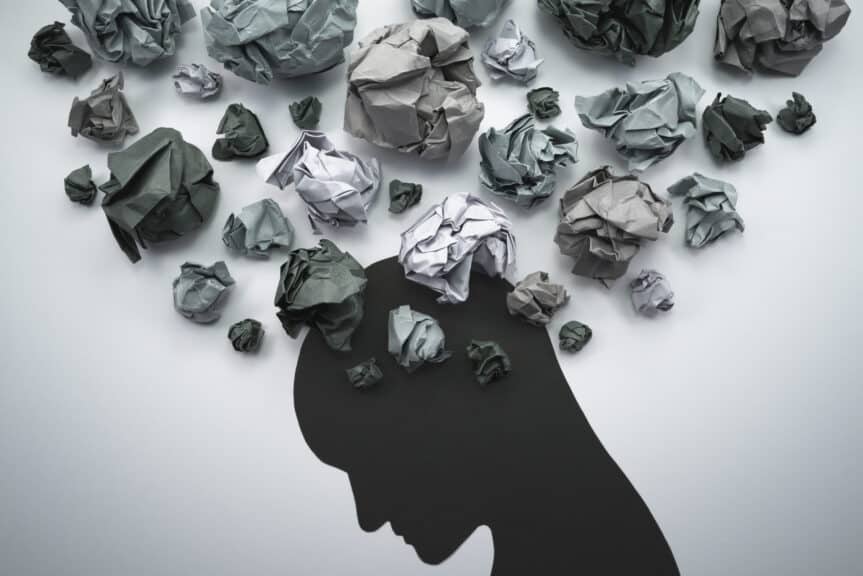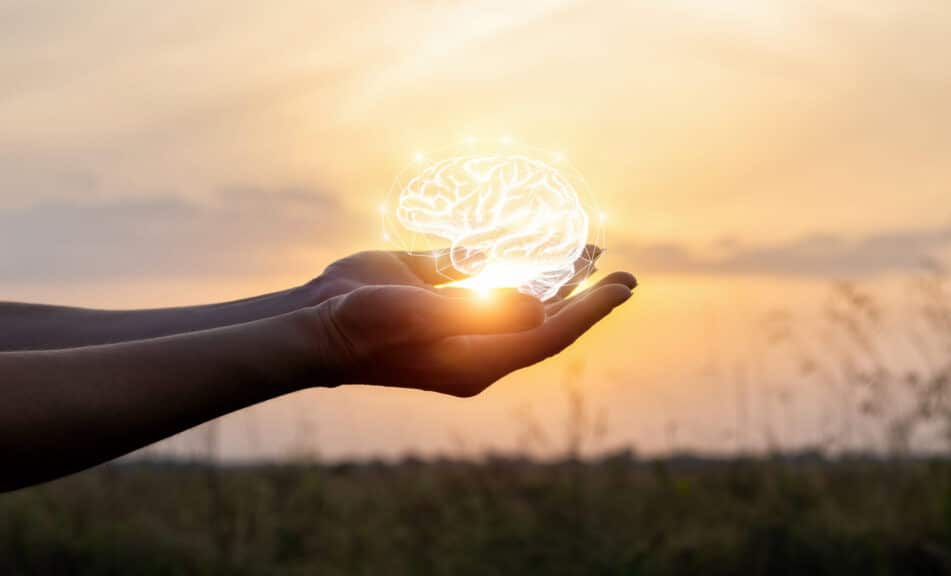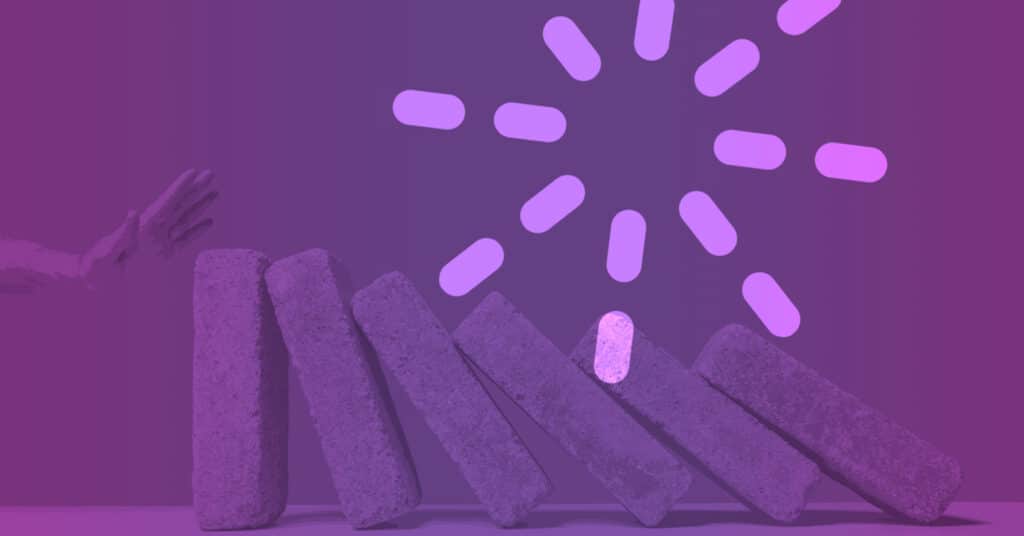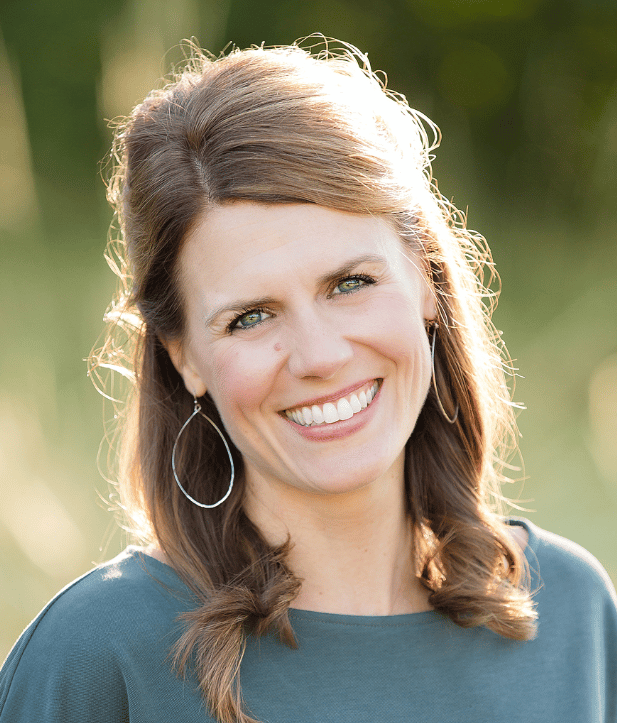Editor’s Note: This is part 2 of a 6-part article series. You can navigate to the other available articles at the bottom of this one.
I was a newlywed when 9/11 happened, and I remember thinking my whole world—what I had dreamed and imagined at that moment—was over. I didn’t want to have kids. And I remember where I was—I think all of us who experienced that event remember.
Then I started to move forward in my journey as a counselor. And I started to learn more about my family of origin. I realized my family has a lot of trauma and a lot of hard things that we didn’t talk about. And some of us don’t talk about it even today.
But a lot of how our families and parents handle the hardships of our stories really impact how we handle stress and trauma in the long haul.
The definition of anxiety is the fear of the unknown. And right now, we are in a time when everything feels unknown. So, anxiety is actually a normal emotion.
Meltdown
My daughter was in kindergarten when she had her first fun run. While we were there, she had a full-on meltdown in the middle of the fun run.
A fun run is a fundraiser where kids get to run laps—there’s music and parents get to join in. You get sponsors and for however many laps you run, you get that much amount of money for the school.
Well, we were there, and my daughter had a meltdown. I was embarrassed and overwhelmed that she was melting down. She was just overstimulated and I, in my mommy hat, was so embarrassed because I’ve got the only kid who’s melting down right now. But my clinical hat said, I know what to do. And the Holy Spirit just whispered do what you know to do.

So, I grabbed her little hands, and I walked her over to the rose bushes. And as she’s crying and hyperventilating, I didn’t know what exactly was happening, but all I knew was that I needed to calm her worry down before we could move forward.
I had her smell the roses, we felt the little leaves, noticed the pricks, looked at the colors, and I could see her body start to calm down. And that was a turning point for me because I realized that I had been struggling with anxiety, but I hadn’t had anybody to help me calm down. And instead of crying like a little five-year-old, I had been getting angry in my anxiety.
Not all of us do the meltdown like the little five-year-old, but maybe we become hyperactive or maybe we become angry. We try to over control. There’s anxiety everywhere we turn from the moment we wake up. So, I’m here to help us.
Bodies on Overdrive
How do we actually help ourselves calm down? What does anxiety look like in your own life? Are you the meltdown type? The get angry type? An overachiever? How does it look for you?
Well, as a reminder, the definition of anxiety is the fear of the unknown. And right now, we are in a time when everything feels unknown. So, anxiety is actually a normal emotion.
It’s on the spectrum of sad, happy, angry, and disappointed. God created anxiety for a signal like a siren to say, something feels uncomfortable for you right now. And when it’s on overdrive, that’s when it becomes abnormal.
If you have a car on overdrive too long, it’s going to ruin the engine. You can see how anxiety can wear and tear on our gut, on our sleep, on our mental focus, and on our communication.
I would say the majority of us are experiencing abnormal anxiety right now because it’s prolonged and we can’t find ways to calm down and find rest. We know to come to Jesus. And we know to go to the Scriptures. We know to pray. And we know these rhythms, but our bodies are in overdrive.
Going Nowhere Fast
It feels like our foot is on the pedal of a car that’s going nowhere. And the engine is just turning and turning, but we can’t seem to get where we need to go. That’s this feeling of anxiety, and it has different symptoms.
And if you think about it, if you have a car on overdrive too long, it’s going to ruin the engine. You can see how anxiety can wear and tear on our gut, on our sleep, on our mental focus, and on our communication.
As adults, this happens and it transfers into little kids, their little bodies are hyperactive. They’re having a hard time focusing. They can’t sleep, or they complain of tummy aches. It’s impacting all of us.
What Causes Anxiety?

Biology
Biologically, some of us are more set up for anxiety or depression based on the genes we got from our parents. Thank you, Adam and Eve … right? You can see it in yourself and in the parents and children you lead. There’s the worrier parent, or even a super-driven parent.
Environmental
It’s a different kind of look environmentally that is impacting us though. The way our homes are. If our kids see their parents are fighting, or if they know if they’re going to have food. And even if I just have a laundry pile sitting in my living room that I have to get to unfold, that can cause me anxiety. And I have too many things over here to deal with.
Environment plays a huge role as to whether or not we’re feeling at ease. And unfortunately, we’re living in a hyper-vigilant environment right now.
Psychology
Psychologically, what skills do we have? Do we know how to literally take our thoughts captive? We talk about that as believers, but, honestly, I don’t really know if we know how to do it. How do we even know if the thought is a lie?
What are we thinking? Are we paying attention to our thought life?
So, psychologically, the things that we meditate on are driving our body. Our mind is the leader of a train and the body responds with a caboose response.
Spiritual
And the spiritual part is true. There is a battle that we can’t see, and we all know that. There is a battle going on, and it is hardcore. But we also know who wins in the end.
Sometimes our anxiety is a spiritual attack, but I tend to not divide those as either-or. I do think that the enemy uses our humanity to trip us up, along with our stories, the things surrounding us, and the lies we perpetuate in our lives.
Habits
Simple things like caffeine impact our anxiety level. If you struggle with anxiety like I do, caffeine is one of the worst culprits for us. I had to give it up years ago because I realized how much it amped me up and made me want to take on the world. And I was more irritable.
Thinking about what we eat, what we put in our bodies, exercise—all of these factors play a role.
When we think about all of the environmental factors, think about the digital age that happened about 2006ish, maybe a little bit earlier when the internet came and all of a sudden, we were exposed to one another. It is so exciting because we can do things like webinars in this time.
And yet on the back side, our brains were not made to be on all the time. So, you fast forward to today where literally we wake up in the morning and we have everything at our wrist—or right by our beds.
Trauma
We can now have access to a traumatic event as it is happening. I can watch things live every single moment of the day. And the interesting thing we know about trauma and the impact of trauma on the brain is that I do not have to experience it personally to be highly impacted.
If I watch you go through something and perceive that I could have that happen to me, it creates the same PTSD response in me. And now the digital world has brought everything potentially harmful into the palm of our hands and into our children’s hands as if we had gone through it in reality. It has heightened the anxiety and the fear in all of us and now.
If I watch you go through something and perceive that I could have that happen to me, it creates the same PTSD response in me.
Online All the Time

The research is telling us that in an online meeting, it’s going to feel like you’ve been hanging out with those people for three times longer. And the reason is because you’re trying to cue into the same facial recognition and body language that you would in person—95% of communication is body language.
It’s not just what someone saying. So, you’re working overtime, like a phone that’s out in the wilderness trying to find its network. And it’s roaming and working extra hard.
We wonder why we’re tired at the end of the day.
And then we have our social media feeds and the news. We’re being inundated by anger and fear and anxiety. On top of that, we get choices on what we’re tuning into. That’s part of what we, as leaders, have to look at so that we can be ready for those who are looking for a place to be comforted and cared for.
Articles in this Series
- Practical Ways to Navigate a Hyper-Anxious World: Introduction (Part 1)
- Practical Ways to Navigate a Hyper-Anxious World: What Causes Anxiety (Part 2)
- Practical Ways to Navigate a Hyper-Anxious World: A Matter of the Brain (Part 3)
- Practical Ways to Navigate a Hyper-Anxious World: Tools to Help (Part 4)
- Practical Ways to Navigate a Hyper-Anxious World: Restoring Power (Part 5)
- Practical Ways to Navigate a Hyper-Anxious World: Conclusion (Part 6)

Supporting Families in an Anxious World: Professional Guidance for Children’s Ministry Leaders

Supporting Families in an Anxious World: Professional Guidance for Children’s Ministry Leaders













